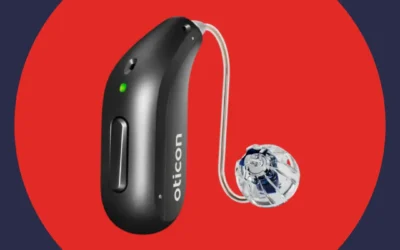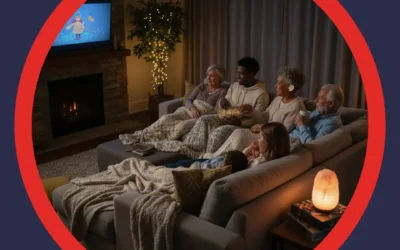July 4th is a beloved American tradition—barbecues, sparklers, parades, and the grand finale of fireworks lighting up the night sky. But as stunning as those bursts of color may be, they come with an unexpected and often overlooked danger. Fireworks can cause hearing damage, and in many cases, the harm is permanent.
Whether you’re lighting firecrackers at home or attending a professional display, your hearing—and your family’s hearing—is at risk. We’re here to help you understand the science behind that risk and give you easy ways to protect your hearing for years to come.
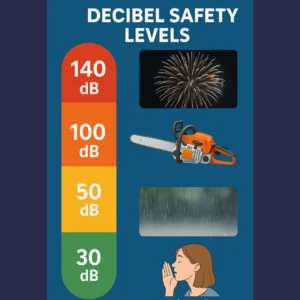
Fireworks Are Louder Than You Think
When we talk about dangerous sound levels, fireworks top the list. They’re not just loud—they’re explosively loud.
At close range, fireworks can reach sound levels between 150 and 175 decibels. That’s louder than a shotgun blast, a jackhammer, or a jet engine at takeoff.
By comparison:
- Normal conversation: 60 dB
- Heavy city traffic: 85 dB
- Rock concert: 110–120 dB
- Fireworks at 3 feet: up to 175 dB
According to the World Health Organization, adults should not be exposed to sounds louder than 140 decibels, and children should avoid sounds above 120 decibels.
That means a single firecracker, when held too close or heard at the wrong angle, can cause instant and irreversible hearing loss.
Understand more about the causes of hearing impairment.
Why Fireworks Can Cause Hearing Damage So Quickly
Hearing damage from fireworks doesn’t take hours—it can happen in less than one second.
The reason is the nature of the sound. Fireworks produce a sudden, high-intensity burst of noise, also known as an impulse sound. Impulse sounds generate shockwaves that are far more dangerous to the inner ear than continuous noise at the same decibel level.
This burst of sound puts intense pressure on your cochlea, the spiral-shaped part of your inner ear that contains thousands of tiny hair cells. These hair cells are crucial to hearing. They vibrate in response to sound waves and convert them into electrical signals that travel to the brain.
When exposed to excessive sound pressure, those hair cells become bent or break. Once destroyed, they do not regenerate. The result? Permanent noise-induced hearing loss (NIHL).
How Hearing Works—and How It Gets Damaged
To understand how fireworks affect your ears, here’s a quick overview of the hearing process:
- Sound enters the outer ear and travels down the ear canal.
- The sound waves strike the eardrum, causing it to vibrate.
- Vibrations are transferred to the three bones in the middle ear (malleus, incus, and stapes).
- These bones transmit sound to the cochlea in the inner ear.
- The cochlea’s fluid moves, activating sensory hair cells.
- These hair cells convert the movement into electrical signals sent to the brain via the auditory nerve.
When the sound is too loud, the movement in the cochlea becomes violent. This damages the hair cells and their tiny projections called stereocilia. Once damaged, they cannot recover.
For more information on how loud sounds cause hearing loss, visit the NIDCD’s guide to noise-induced hearing loss.
Temporary Threshold Shifts: A Warning Sign
You may have experienced a temporary threshold shift after a fireworks show. Your ears ring. Sounds seem muffled. You may even feel slightly disoriented. This is your body’s warning system.
During a temporary threshold shift, your hair cells are injured but not yet destroyed. Your hearing may recover in a few hours or days—but repeated shifts can add up to long-term damage.
Don’t ignore these symptoms. If your hearing feels “off” after fireworks, you’re already pushing your ears too far.
Find out how healthy hearing helps with healthy aging.
Children and Fireworks: A Dangerous Combination
Children are especially vulnerable. Their ears are still developing, and their ear canals are much smaller, making them more susceptible to intense sound pressure.
In fact, sounds that seem loud to an adult can be up to 20 decibels louder to an infant.
Never bring babies to a fireworks show. Not only is the sound overwhelming, but it can also cause permanent hearing damage after just one loud blast.
Instead, protect young ears with well-fitting child-sized earmuffs and keep infants indoors or at a safe distance.
Signs of Firework-Related Hearing Damage
If you or a loved one experience any of the following signs after a fireworks show, it may indicate damage:
- Ringing or buzzing in the ears (tinnitus)
- Difficulty understanding speech
- Muffled or distorted sounds
- Hypersensitivity to loud noises
- Needing to increase TV or phone volume
- Pain or pressure in the ears
Sometimes these symptoms disappear in a day. But in many cases, especially after repeated exposure, they signal permanent hearing loss.
Fireworks and Hearing Loss: The National Impact
According to the American Speech-Language-Hearing Association, roughly 15% of Americans aged 20 to 69 have noise-induced hearing loss.
And the issue starts young—up to 17% of teens aged 12 to 19 already show early signs of NIHL.
For veterans, noise-induced hearing loss is the top service-connected disability. Firearms, explosives, and loud machinery are all contributors—just like fireworks.
Hearing damage doesn’t discriminate by age. One loud experience is enough.
Explore more about hearing loss in millennials and Gen Z.
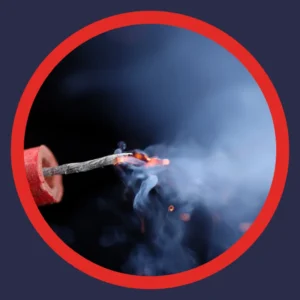
Which Fireworks Are Most Harmful?
Not all fireworks are created equal. Some are much louder than others.
Fireworks to Avoid:
- Rockets and mortars
- Mines with multiple blasts
- Firecrackers with layered explosions
These are designed for maximum impact—and maximum noise.
Quieter Fireworks (Still Loud, But Safer):
- Fountains
- Comets
- Wheels
- “Falling leaves” fireworks
These still put on a show without the jarring explosive booms. They’re also more considerate of pets, veterans with PTSD, and sensitive neighbors.
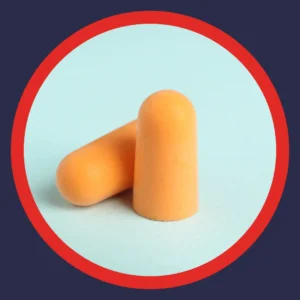
How To Protect Your Hearing From Fireworks
The good news? Hearing damage from fireworks is 100% preventable. Follow these essential tips:
1. Attend Professional Shows Instead of Lighting Fireworks at Home
Home fireworks are unpredictable and often too close for safety. Community fireworks events are managed by professionals and typically offer safer viewing zones.
2. Keep a Safe Distance (Minimum 500 Feet)
Sound pressure drops with distance. The farther you stand from the launch site, the safer it is for your ears. Bonus: you’ll still get a great view.
3. Use Hearing Protection—Every Time
Adults should wear snug-fitting foam earplugs. Kids need child-size earmuffs, which are easier to use and more secure. For frequent exposure, consider custom hearing protection from your local hearing center.
4. Limit Exposure Time
Even with ear protection, don’t linger too long. Take breaks from loud areas. Give your ears time to recover.
5. Use Sound-Level Apps
Many smartphones can alert you to dangerous sound levels. Free decibel meter apps can help you monitor real-time exposure.
6. Never Expose Infants to Fireworks
Infants should stay indoors or far from loud noises. If you’re unsure, err on the side of caution.
What To Do If You Notice Symptoms
After fireworks, if you notice muffled hearing, ringing ears, or difficulty understanding speech, act quickly:
- Leave the noisy environment immediately
- Avoid additional loud sounds for at least 24 hours
- Schedule a hearing evaluation if symptoms persist into the next day
The earlier you act, the better your chances of minimizing long-term damage.
Hearing Loss Is Permanent—But Preventable
The tiny hair cells inside your cochlea don’t grow back. That means the damage fireworks cause can last forever. But unlike many other health conditions, hearing loss from fireworks is entirely preventable with the right steps.
We want you to enjoy your Independence Day—but enjoy it safely. Keep the fireworks, skip the damage.
Understand hearing aid insurance benefits.
Protect Your Hearing This Summer With Help From American Hearing + Audiology
Fireworks can cause hearing damage—but with the right protection, you can enjoy every boom, crackle, and pop without worry.
At American Hearing + Audiology, we offer:
- Custom hearing protection for adults and children
- Hearing evaluations for any post-event symptoms
- Expert care from licensed hearing care providers
- Ongoing support to keep your hearing at its best
Contact American Hearing today to schedule an appointment at one of our top-rated hearing centers. Celebrate with confidence—and protect your hearing for every holiday to come.


